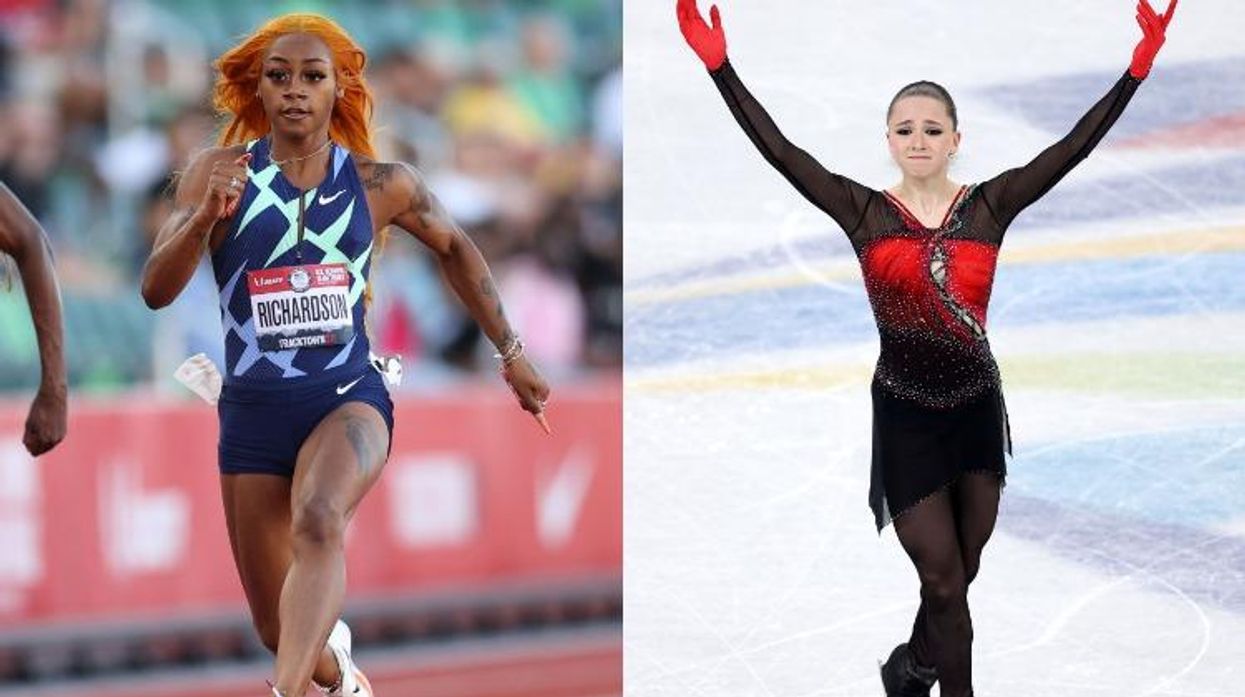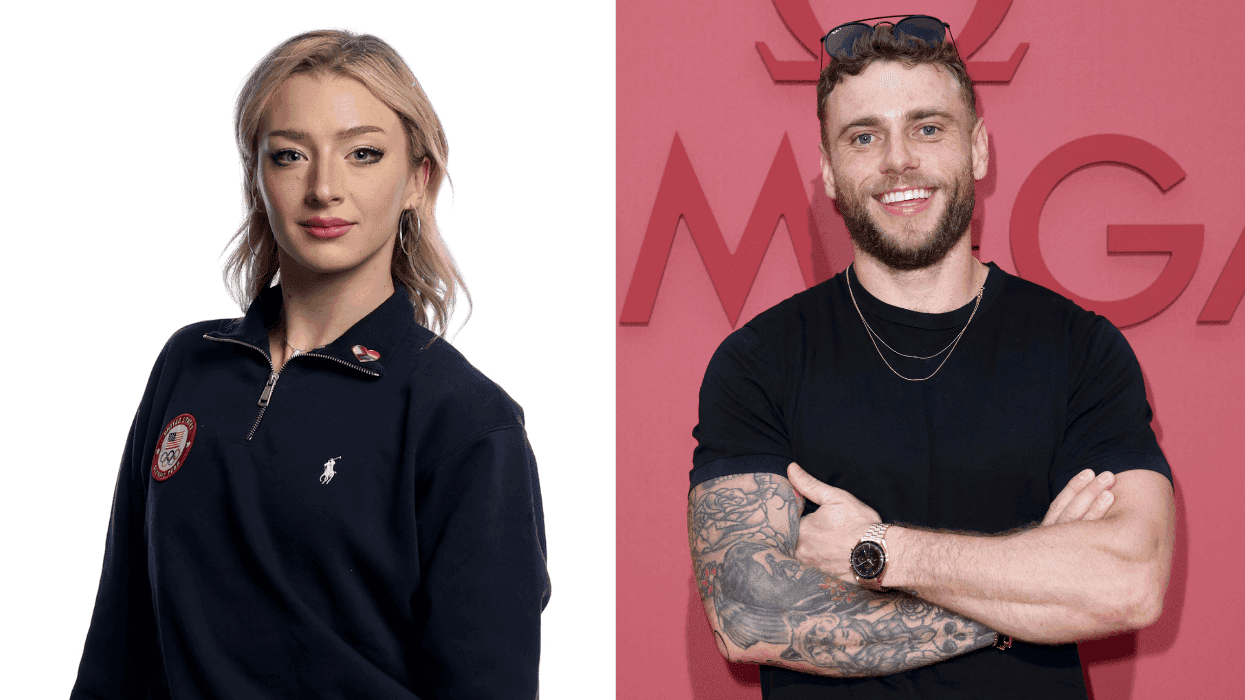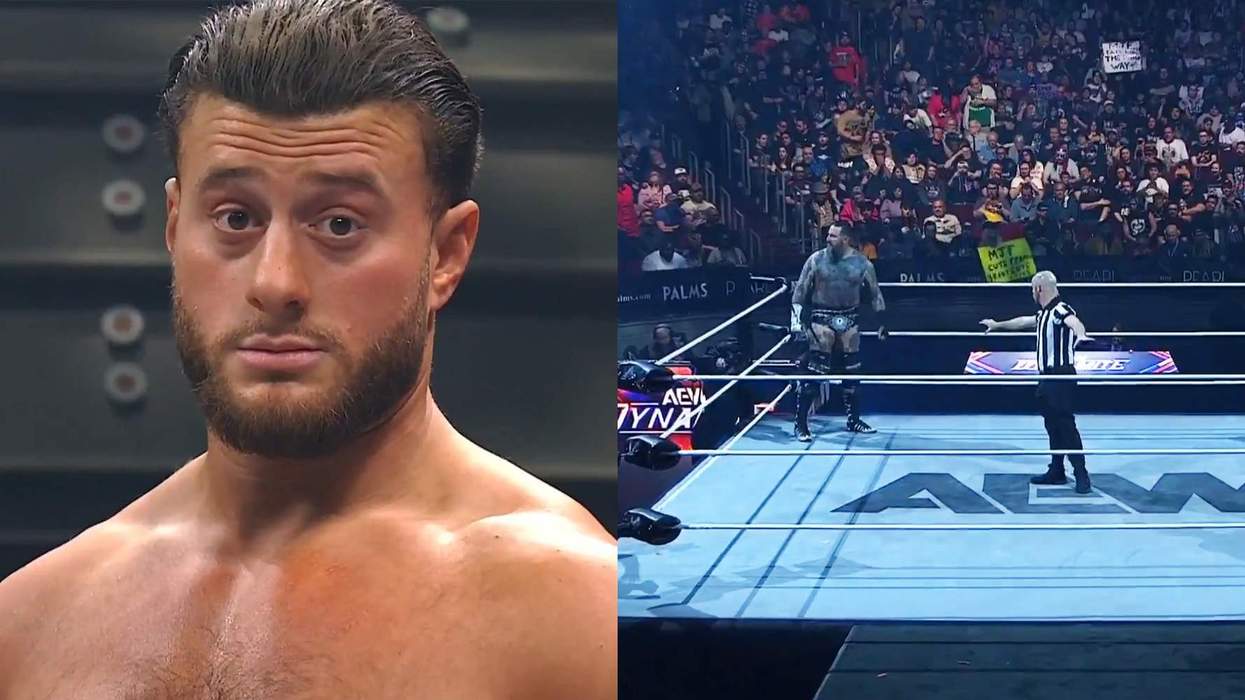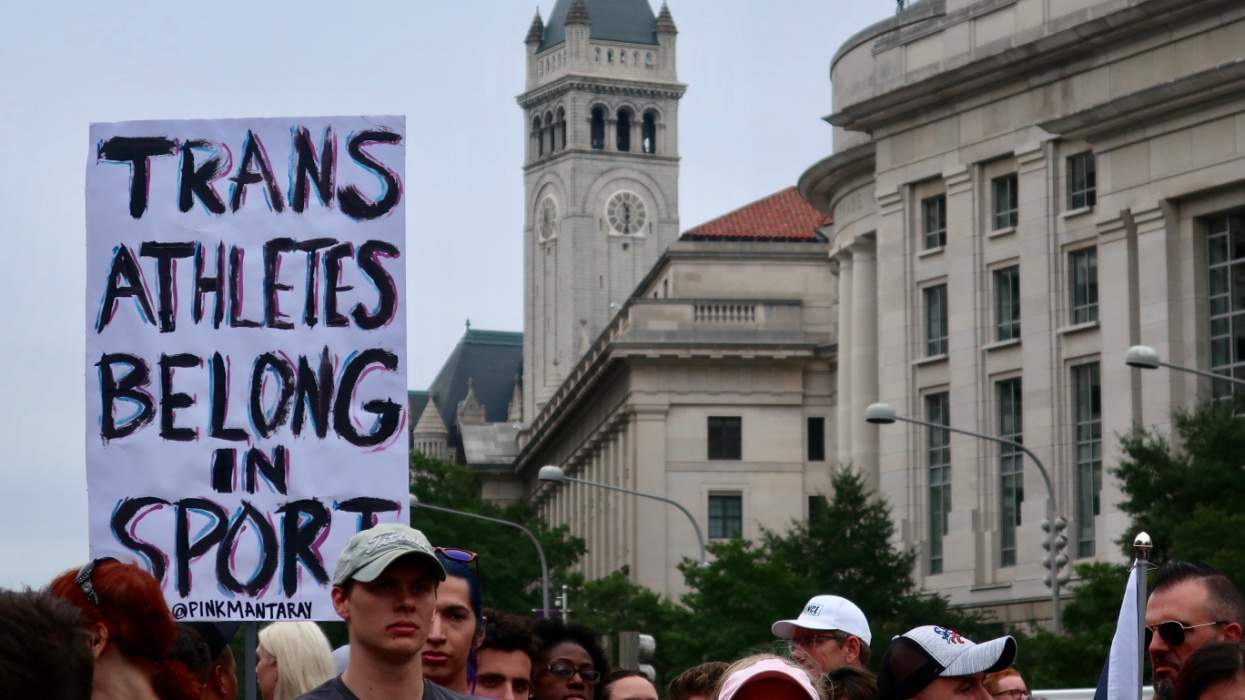Queer sprinter Sha'Carri Richardson questioned Monday how Russian figure skater Kamila Valieva has been allowed to compete in the Beijing Olympics even amid a doping charge -- a similar offense that prevented Richardson from competing in the recent Tokyo Summer Olympics.
Richardson, 21, had been a popular athlete leading up to the Tokyo Games held last summer. However, she was given a one-month ban for testing positive for cannabis, which kept her from participating in the games.
She later said that she used the cannabis while mourning the death of her mother.
On Monday, Valieva, 15, was given the go-ahead by sport's highest court to continue to participate in the games. However, there will not be a medals ceremony this week in her competition, the women's singles, if she finishes in the top three spots until a complete investigation into the doping is complete.
Valieva tested positive for the banned angina drug trimetazidine, which may boost performance, BuzzFeed News reports.
In a tweet on Monday, Richardson asked, "Can we get a solid answer on the difference of [Valieva's] situation and mines?"
She added, "My mother died and I can't run and was also favored to place top 3. The only difference I see is I'm a black young lady."
Richardson then asked why Valieva's positive doping results were revealed during the Olympics and not earlier.
"Failed in December and the world just now know however my [results were] posted within a week and my name & talent was slaughtered to the people," she wrote in another tweet.
She also added that she didn't even test positive for a performance-enhancing drug.
"Not one Black athlete has been about to compete with a case going on, I don't care what they say," Richardson wrote. "It's all in the skin."
Monday's ruling was on whether Valieva could still compete, according to The Guardian. There is still a possibility for her to be banned in the coming weeks and be stripped of medals won in Beijing.
On social media, people pointed out the difference in the treatment of Richardson and Valieva.
The U.S. Olympic and Paralympic Committee's CEO, Sarah Hirshland, released a statement saying the organization was "disappointed" in the ruling on Valieva.
"We are disappointed by the message this decision sends," Hirshland said while noting Russia's history of doping. "Athletes have the right to know they are competing on a level playing field. Unfortunately, today that right is being denied."
















Charlie Kirk DID say stoning gay people was the 'perfect law' — and these other heinous quotes
These are some of his worst comments about LGBTQ+ people made by Charlie Kirk.